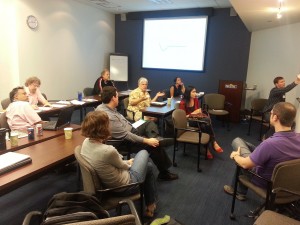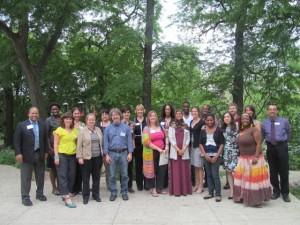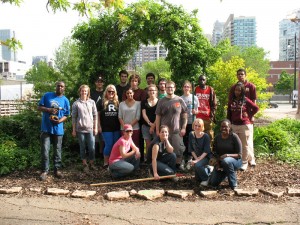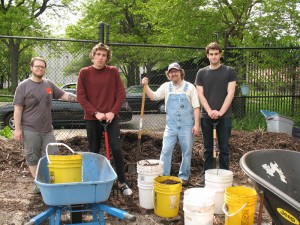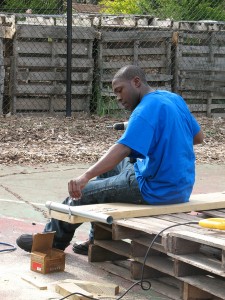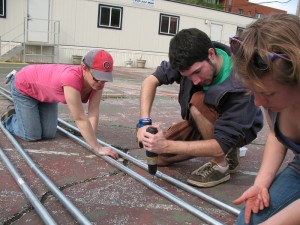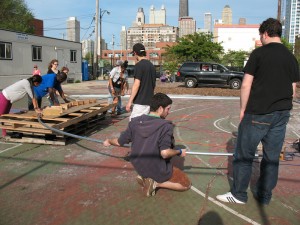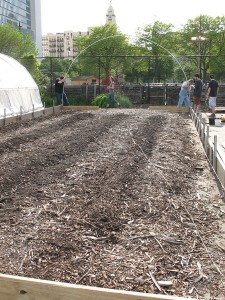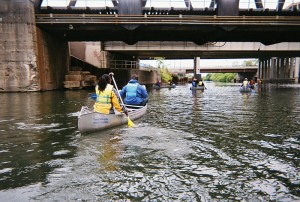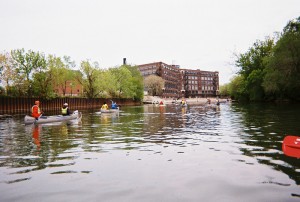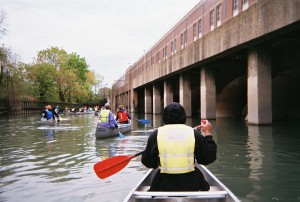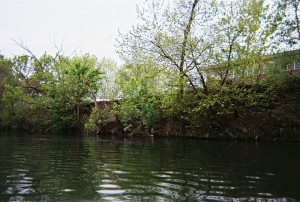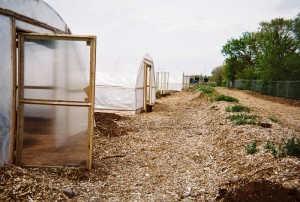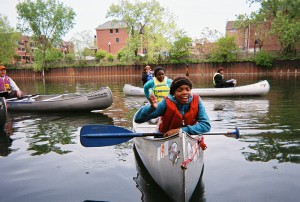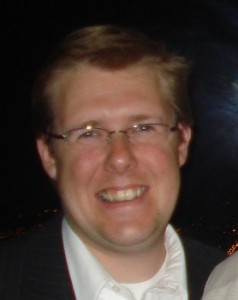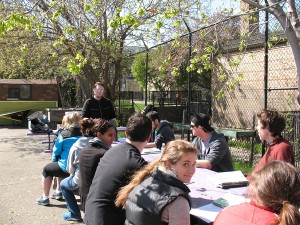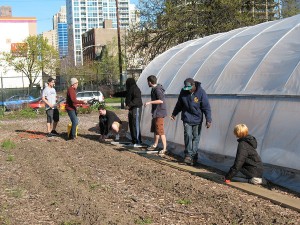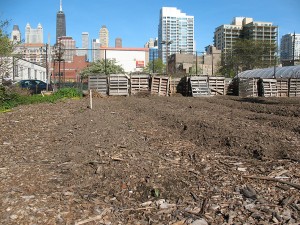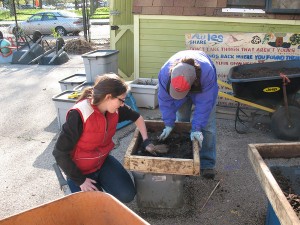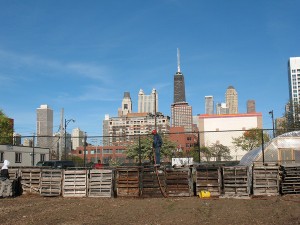Saturday, Sept. 8th, was the first day of class for my Fall 2012 Sustainability Studies 220 Water seminar at Roosevelt University. Instead of staying inside our classroom all day, though, we took advantage of excellent late-summer weather here in Chicago to take an urban river parklands adventure to Chicago’s North Side. From RU’s campus in downtown Chicago, we caught the Brown Line L train to a quiet and charmingly at-ground-level station near the end of the line (Francisco, in case you’re curious), where we walked through a quiet residential neighborhood just south of Lawrence Avenue to the entrance of Ronan Park. This is one of several parklands that border the North Branch of the River as it winds its way south through the city.

(M. Bryson)
We met up with naturalist-educators Mark Hauser and Claire Snyder from the environmental organization Friends of the Chicago River, who led us on a hike through the community-established Bird Sanctuary in Ronan Park — a charming linear greenspace that hugs the river and provides excellent wildlife habitat as well as soil stabilization with a lush landscape of native grasses and wildflowers as well as trees.
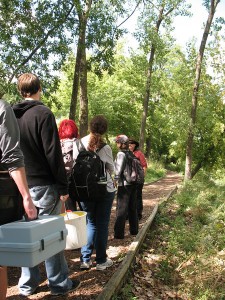
(M. Bryson)
Immediately north of Ronan Park, we entered West River Park, a multi-use parkland which provides numerous recreation activities as well as open space and excellent public access to the river. Prominent here is the confluence of the North Branch, which heads north for several miles out of the city and toward the Wisconsin border; and the North Shore Channel, a canal that was dug between 1907 and 1910 to provide a connection between Lake Michigan and the North Branch, thus increasing the flow and improving the water quality of the latter.
This confluence is an excellent place to examine the water quality of the river, for we were able to take a chemical and biological profile above and below the dam/spillway on the North Branch, which is just upstream from the North Shore Channel’s mouth. We measured key chemical indicators such as temperature, turbidity, pH, dissolved oxygen, nitrate, and phosphate; and wading into the river with D-nets to scrape up mud in search of macroinvertebrates (worms, leeches, crawfish, snails, damselfly nymphs, etc.).
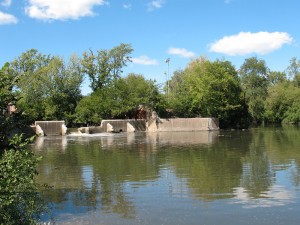
(M. Bryson)
Above the dam, where the water travels downstream from the North Branch’s long journey southward through forest preserves and residential areas in the northern suburbs and North Side of the city, the water quality rated a “D” according to our chemical profile, mainly due to high suspended solids, high phosphates levels from polluted stormwater runoff, and low dissolved oxygen concentrations. Here our biological profile was slightly better (rated as “fair”) since we found a decent diversity of organisms, some of which are not highly pollution tolerant.

(M. Bryson)
Downstream of the dam, the chemical analysis results were a little better (“C-“), since the spillway served to oxygenate the water and significantly raise the dissolved oxygen value, which is critical for aquatic life to flourish. This was despite somewhat higher nitrate levels, which likely result from the wastewater effluent inputs to the Channel north of here, at the MWRD’s O’Brien wastewater treatment plant just north of Howard St.
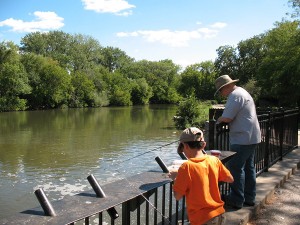
(M. Bryson)
Both the North Branch and North Shore Channel are impacted by polluted stormwater runoff in the city and suburbs (which includes excess pesticides and chemical fertilizers applied to residential and commercial lawn properties, as well as from the ten golf courses within 20 miles of our sampling site); normal wastewater effluent discharges (where treated water nevertheless contains high bacterial levels, since effluent is not yet disinfected in a final stage of treatment, as in all other major US cities); and periodic combined sewage overflow (CSO) events, which occur when during a rainstorm the sewage system reaches capacity and untreated wastewater is released into the waterways to prevent sewage system back-ups into people’s homes.
Beyond learning to use the water sampling equipment and calculating a quick chemical and biological profile of the For images and notes from our trip, this trip allowed us to examine the way people interact with the river in an urban parkland, as well a discuss the river’s history of transformation here in Chicago. For more images from our day, see this annotated slideshow of photos; and check out the data from our sampling work at the link below.
West River Park Water Quality Data 2012-09-08 (pdf)
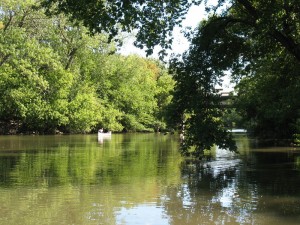
(M. Bryson)
